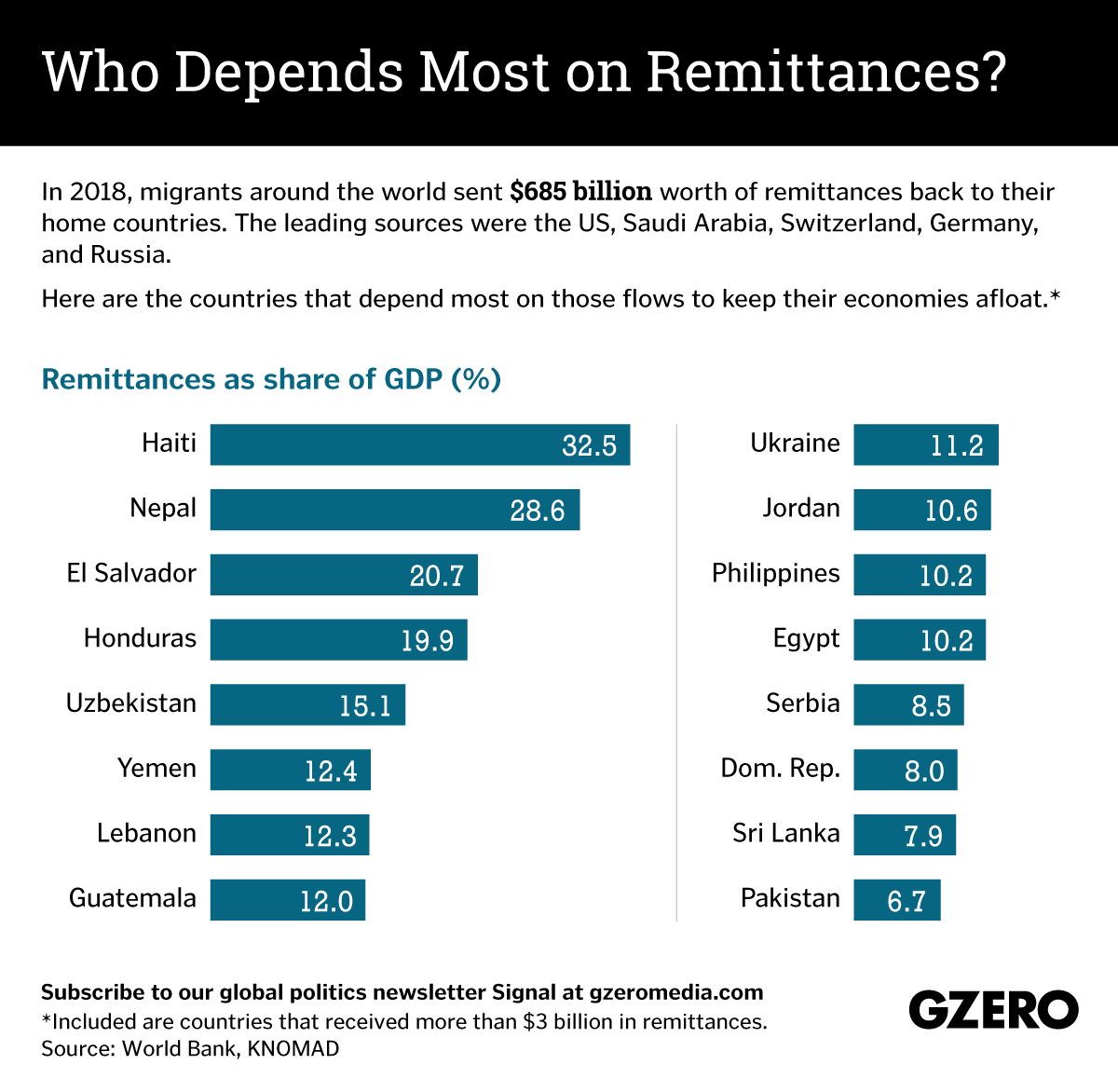April 28, 2020
Around the world, hundreds of millions of households and families depend on remittances sent home by migrants working abroad. For many nations, those flows form a sizable chunk of the national economy. But the World Bank has now warned that coronavirus-related lockdowns could slash remittances by as much as 20 percent this year, wreaking havoc on the economies that depend on that cash the most. Consider Haiti, the poorest country in the Western Hemisphere, where remittances account for almost a third of GDP. Or Central American countries like El Salvador and Honduras where the figure is roughly 20 percent. Tiny Lebanon's giant diaspora sends home cash worth 12 percent of GDP, while transfers from Philippine seamen and overseas domestic workers support 10 percent of their home economy. Here's a look at some of the countries that will be hit hardest if global remittance flows grind to a halt because of the coronavirus pandemic.
More For You
41.5%: The proportion of Havana’s garbage trucks that were operational this month, according to state-run media, as Cuba’s fuel crisis prompts a garbage crisis.
Most Popular
- YouTube
Sovereignty has become one of the most powerful, and least defined, words in tech policy. At the 2026 Munich Security Conference, SAP global head of government affairs, Wolfgang Dierker, explains why governments and enterprise customers are demanding more control over their data, cloud infrastructure, and AI systems amid rising geopolitical uncertainty.
- YouTube
On the sidelines of the 2026 Munich Security Conference, Annemarie Hou, Executive Director of the United Nations Office of Partnerships, joined Tony Maciulis to discuss the power of women leaders in global decision-making.
Security in a fragmented world: Cyber deterrence, NATO reform & the future of trusted tech
Feb 14, 2026
- YouTube
In a new Global Stage livestream from the 2026 Munich Security Conference, New York Times White House and national security correspondent David Sanger moderates a conversation with Ian Bremmer (President & Founder, Eurasia Group and GZERO Media), Brad Smith (Vice Chair & President, Microsoft), Benedetta Berti (Secretary General, NATO Parliamentary Assembly), and Wolfgang Dierker (Global Head of Government Affairs, SAP) on how technology and defense are colliding in real time.
© 2025 GZERO Media. All Rights Reserved | A Eurasia Group media company.
